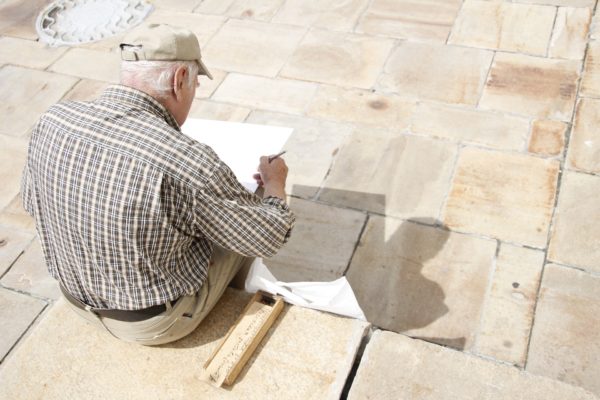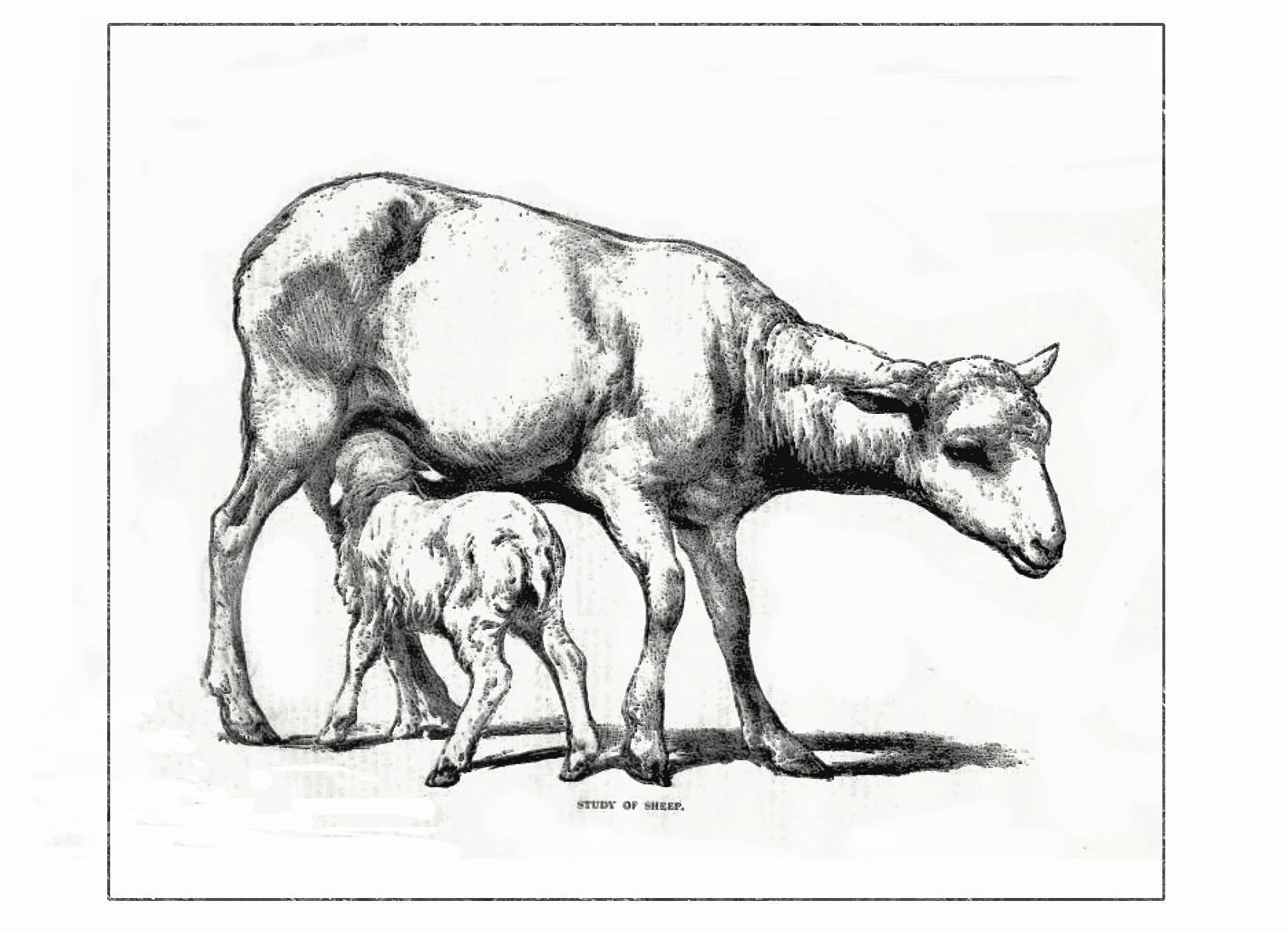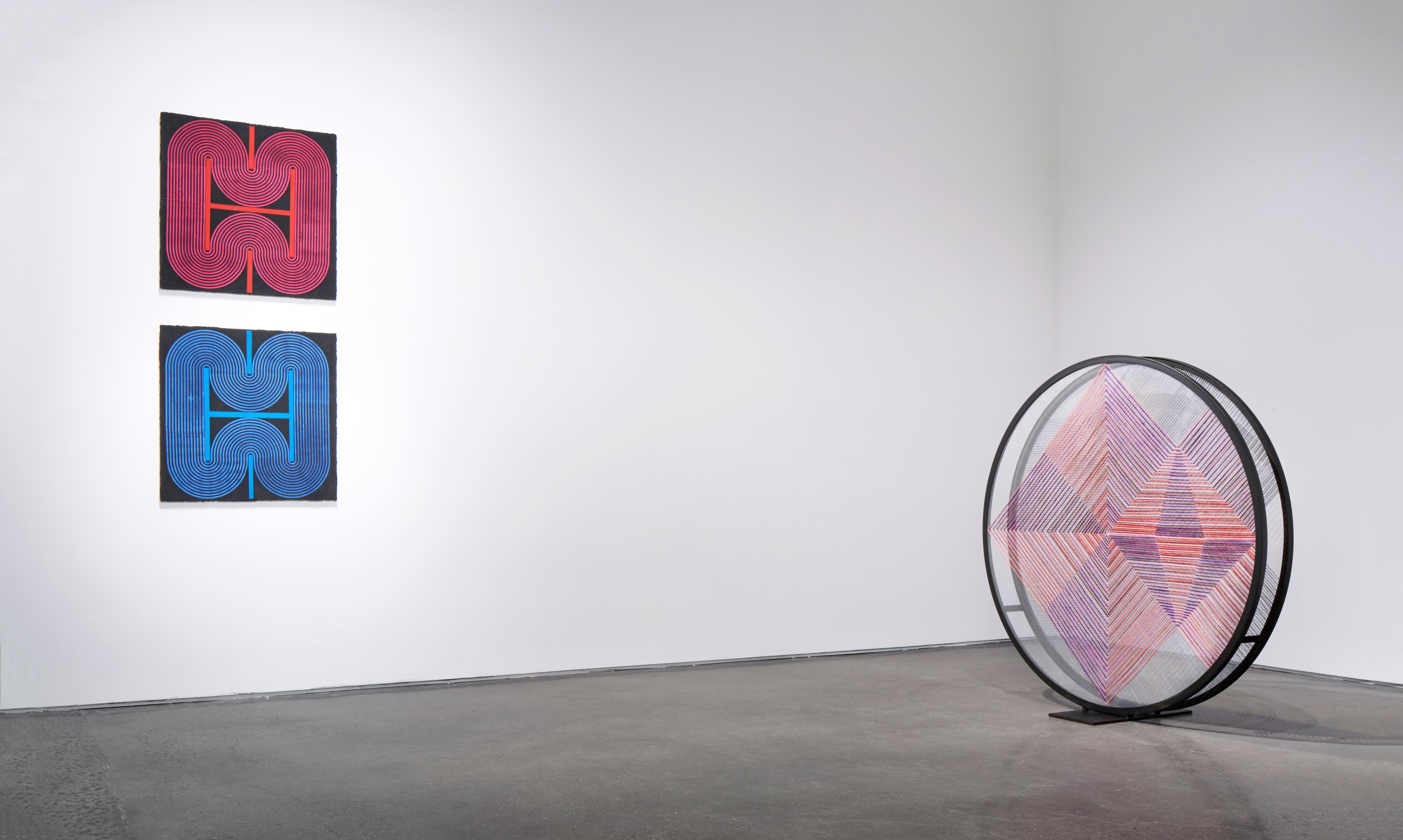By George Herwegh
Translated by Ken Walker
Author’s note: This translated poem has been brought into English from the German, by Georg Herwegh: 19th century poet and letter writer, philosopher of sorts, friend to Marx and Engels, who has barely published in English. The poem comes from Herwegh’s first book Gedichte Eines Lebendigen (Or, Poems of A Living Being).
To the Federal Labor Union
Get down on your chins slog, the dirt solicits
the womb under your fingernails.
The world’s fractious for your organs.
Briefly, implore
because your time is
the evolution of resources sharpening
the angles of more resources,
exploits at their core—
one door away from homelessness, one door away
and anxiety deludes from its position on the opposite
side of the door,
expecting the end of the day. But, you’re one door away.
How many doors in a day?
How many days hawked to endorsements?
Your days, not yours. And you stick your steak knife
into your backyard’s heart
and hope for some rivets of survival. And you
tear down the fence the raccoon has chewed a gap into,
put patches on the holes in your oxford shoes.
hack at the courtyard spruce, prune and you prune.
But, there is nothing you can save, neither, nothing
you can lose. You’ve only had nothing.
How much loss in nothing, how much bluffing in nothing,
how much nothing in this huge ruse, this huge
huge deluge, global manual enclave,
collective protracted daze—
sweatshops, coal-mines, manufacturing factories, abandoned
landscapes, nuclear grime. Fill it up, fill it—full
to the snifter, full
to the rock, to the brim, stop.
Yet where’s your meal prepared? And, where and how
is your sleep pared, cut into,
the leviathan surgeon in such control of all the tolls
keeping you from the next road. Why
is each maneuver one more shot-put at the carnival,
animals never moved off the glued, marveling shelves?
Why’re we animals made so solid, snugly packed
that we’ll never rid our bodies of ourselves?
Bundeslied für den Allgemeinen Deutschen Arbeiterverein
Bet und arbeit! ruft die Welt,
Bete kurz! denn Zeit ist Geld.
An die Türe pocht die Not –
Bete kurz! denn Zeit ist Brot.
Und du ackerst, und du säst,
Und du nietest, und du nähst,
Und du, hämmerst, und du spinnst –
Sag, o Volk, was du gewinnst!
Wirkst am Webstuhl Tag und Nacht,
Schürfst im Erz- und Kohlenschacht,
Füllst des Überflusses Horn,
Füllst es hoch mit Wein und Korn –
Doch wo ist dein Mahl bereit?
Doch wo ist dein Feierkleid?
Doch wo ist dein warmer Herd?
Doch wo ist dein scharfes Schwert?
Alles ist dein Werk! o sprich,
Alles, aber nichts für dich!
Und von allem nur allein,
Die du schmiedst, die Kette, dein?
Kette, die den Leib umstrickt,
Die dem Geist die Flügel knickt,
Die am Fuß des Kindes schon
Klirrt – o Volk. das ist dein Lohn.
Was ihr hebt ans Sonnenlicht,
Schätze sind es für den Wicht,
Was ihr webt, es ist der Fluch
Für euch selbst – ins bunte Tuch.
Was ihr baut, kein schützend Dach
Hat’s für euch und kein Gemach;
Was ihr kleidet und beschuht,
Tritt auf euch voll Übermut.
Menschenbienen, die Natur,
Gab sie euch den Honig nur?
Seht die Drohnen um euch her!
Habt ihr keinen Stachel mehr?
Mann der Arbeit, aufgewacht!
Und erkenne deine Macht!
Alle Räder stehen still,
Wenn dein starker Arm es will.
Deiner Dränger Schar erblaßt,
Wenn du, müde deiner Last,
In die Ecke lehnst den Pflug,
Wenn du rufst: Es ist genug!
Brecht das Doppeljoch entzwei!
Brecht die Not der Sklaverei!
Brecht die Sklaverei der Not!
Brot ist Freiheit, Freiheit Brot!
— Georg Herwegh, 1863
Ken L. Walker lives in Brooklyn, New York but keeps a Kentucky driver’s license in his wallet. He is the author of the chapbooks Twenty Glasses of Water (Diez, 2014) and Antworten (Greying Ghost, 2017). He has work in the anthologies, Oil & Water (Typecast, 2010) as well as Devouring the Green (Jaded Ibis, 2015). His prose and poetry can also be found in the Boston Review, The Poetry Project Newsletter, The Brooklyn Rail, The Seattle Review, Atlas Review, Lumberyard, and Tammy.




